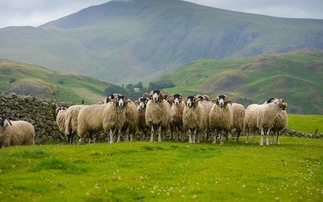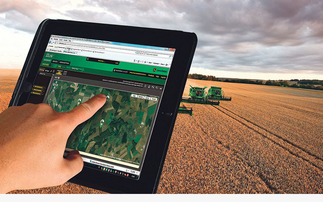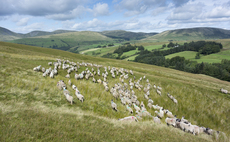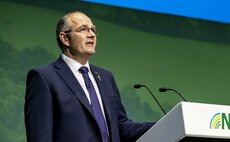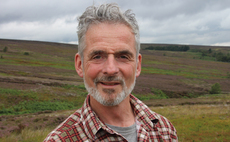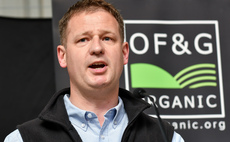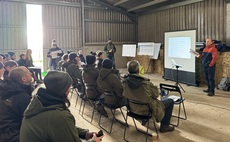
James Robinson has launched a petition calling for better support for farmers
An open letter pleading with Secretary of State Therese Coffey to offer greater support to upland and marginal farmers has been signed by more than 2,700 people.
Last month, James Robinson, a fifth generation dairy farmer from Cumbria, voiced an impassioned plea online and accused the Secretary of State of ‘abandoning upland farmers', with schemes that exclude those who could best deliver the Government's transition to public money for public goods.
"Marginal and upland farmers are finding it harder and harder to access higher tier agreements," Mr Robinson told Íæż½ã½ã. "It is an income stream loss for the farmer but more than that it is also a lost opportunity to bring much-needed benefits to nature and the environment."
Mr Robinson said over the past few months, hundreds of farmers were left bitterly disappointed as only a handful of agreements for higher tier schemes were approved, representing an 80 per cent decrease (across the whole of agriculture) in the number of agreements being approved. This, according to Mr Robinson, is in stark contrast to 2013 when up to 2,500 higher tier agreements were put in place.
Optimistic
"I had been very optimistic at the start of the transition - even until 12 months ago - but now it seems like no one knows what is happening. Schemes are announced and then you are taken off them as new ones are coming, but then they do not appear. It is an absolute nightmare."
His comments were echoed by NFU Uplands Forum chair Thomas Binns who said Mr Robinson was right to ‘highlight the disconnect' between the Government and farm businesses.
"Many upland farmers are now engaged in a fight for survival. But Defra does not seem to grasp this. It is planning policies of the future but farmers do not have that luxury. They need support now as many are in a precarious position. The NFU has called for the removal of BPS to be halted several times and Defra needs to listen or many farm businesses will be decimated."
Mr Robinson's campaign has three major asks: firstly, that upland and marginal farmers are offered increased access to ambitious land management schemes such as the Higher Tier of Countryside Stewardship and Landscape Recovery to allow a minimum of 3,000 agreements per annum; bolster advisory capacity to ensure farmers are supported to deliver the best outcomes; and to provide a ‘clear, coherent transition strategy which clearly articulates how farm policy and payments will evolve to 2030.'
"This is crucial in providing a clear roadmap for the future which ensures all farmers will invest in environmental land management with confidence and certainty," Mr Robinson said.
Speaking at the Back British Farming Day in London (September 13), Ms Coffey said the department had done much to 'equalise' support for upland farmers.
Ms Coffey said: "It is the first time we have equalised the rates and first time we have had market rate pricing. It is the right thing to do. I want to make sure our upland farmers are in a great position. Every farm is different around the country, different need and challenges and that is why we need to be agile and make policy changes accordingly and that is what we do for our upland farmers.
"We are not just listening we are acting, refining and delivering."








